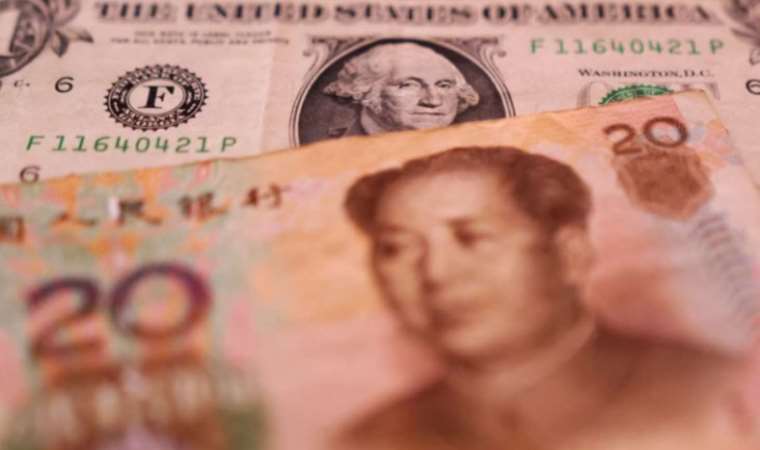Chinese exporters are using currency swaps to keep their dollars as the yuan weakens
Chinese exporters are employing a complex currency swap strategy to avoid converting their dollar earnings into yuan, fearing potential losses in the U.S. currency.

This insight is drawn from official data and conversations with companies.
Chinese state banks serve as counterparties in these swap transactions, enabling exporters to exchange their dollars for yuan. This suggests that China's currency regulator is comfortable with these trades, even as authorities work to mitigate the intense pressure on the yuan in spot markets.
Exporters like Ding, a Shanghai-based businessman specializing in electronics and toys who prefers to be identified by his last name, are firmly holding onto their dollar earnings, hesitating to sell and convert them into yuan, which has recently dropped to nine-month lows.
Ding shared his perspective: "My fellow exporter friends and I have been discussing whether to utilize foreign exchange swap trades to obtain yuan. The primary concern is the continuous appreciation of the dollar."
The yuan has depreciated more than 5% against the U.S. dollar this year, with a 2% decline in just this month. It's further weighed down by foreign capital exiting the weakening Chinese economy.
These currency swaps allow exporters to deposit their dollars with banks in exchange for yuan through a contractual arrangement that will eventually reverse the process, returning their dollars.
However, while these swaps reduce the supply of dollars in the spot yuan market, analysts believe that Chinese monetary authorities cannot compel exporters to convert their dollars.
In July alone, Chinese companies engaged in record-breaking swaps, exchanging $31.5 billion for yuan with commercial banks in the onshore forwards market. This year, the total amounts to $157 billion, according to the country's currency regulator.
Initially, Ding planned to convert his dollar holdings when the yuan crossed the 7-per-dollar threshold, a level it has touched only three times since the 2008 Global Financial Crisis. However, he changed his strategy as expectations grew regarding the Federal Reserve maintaining higher interest rates for a longer period and the persistent yuan weakness as China eases monetary policy to support its slowing economy.
"The growing monetary policy divergence is the key reason behind this trend," explained Gary Ng, senior economist for Asia Pacific at Natixis. "As there is unlikely to be any fundamental change in the short run, the allure of yield differentials will continue to push the yuan lower, prompting exporters to bet on the dollar."
How the swap works
Rising U.S. yields and the widening gap with Chinese rates have also reversed rates in the currency forwards market, eliminating the incentive for exporters to lock in a forward rate to sell their dollars. The one-year yuan is quoted at 7.02 per dollar, compared to a spot rate of 7.29.
Traders report that the State Administration of Foreign Exchange permits sell-buy dollar-yuan swaps if companies use their own funds. When exporters exchange higher-yielding dollars for the cheaper yuan for as little as three months, they obtain local currency for business needs and earn an annualized 3.5% on the swap deal.
Becky Liu, head of China macro strategy at Standard Chartered Bank, elaborated: "By trading FX swaps, exporters can delay their settlements while fulfilling their yuan demand."
An alternative, though less remunerative, approach is for exporters to deposit their dollars at 2.8% interest and use this as collateral for yuan loans, resulting in net gains of around 2%.
In an attempt to discourage hoarding and encourage exporters to convert their dollars into yuan, Chinese lenders have twice lowered dollar deposit rates this year. However, more exporters seem to be turning to swaps instead.
China Merchants Bank, partially state-owned, even encourages exporters to utilize swaps. The bank stated, "If companies wish to retain their dollar deposits, they can opt for foreign exchange swap products to enhance returns on dollar deposits."
Meanwhile, China's central bank has intensified efforts to support the yuan, consistently setting stronger-than-expected yuan midpoint benchmarks and urging domestic banks to reduce their overseas investments.
Exporter swaps provide state banks with a reserve of dollars for their yuan operations, enabling them to engage in swaps to acquire dollars from the onshore forwards market and sell them in the spot market, thereby mitigating rapid declines in the yuan.
